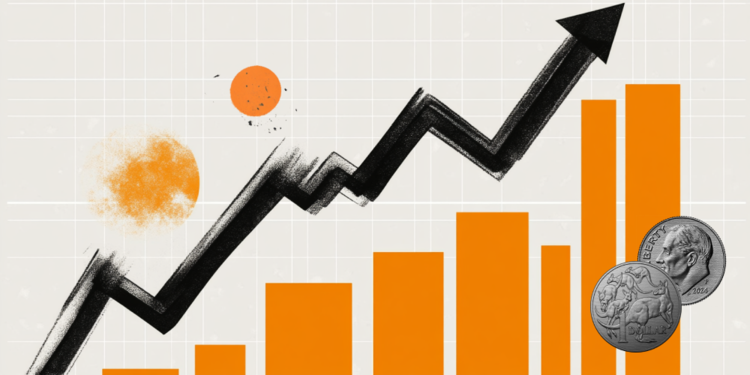A multidisciplinary group of experts came together to combat the breast cancer and current inequalities in relation to access to diagnosis and treatment. In a report published on Monday (15), the Lancet Commission states that, although breast cancer treatment and survival rates have improved in developed countries, inequalities still persist It is Many patients do not receive adequate treatment .
According to report, at the end of 2020, about 7.8 million women who had been diagnosed with breast cancer in the previous five years were still alive. This reflects progress in cancer research and management, which has reduced mortality from the disease by 40% in most developed countries.
However, about 685 thousand women died from breast cancer in 2020 . This, together with the inequalities and suffering related to physical and emotional symptoms and financial costs related to the tumor, which are often hidden and inadequately addressed, are urgent challenges that must be faced.
Given this, the Lancet Commission for breast cancer established recommendations to reduce these gaps and increase knowledge around the disease.
“Recent improvements in breast cancer survival represent a major success of modern medicine. However, we cannot ignore how many patients are systematically abandoned. Our Commission builds on previous evidence, presents new data and integrates patient voices to shed light on a huge invisible burden,” says Charlotte Coles, lead author of the Commission and professor in the department of oncology at the University of Cambridge, UK, in a press release.
“We hope that by highlighting these inequalities, the hidden costs and suffering of breast cancer, they can be better recognized and addressed by healthcare professionals and policy makers, in partnership with patients and the public around the world,” complete.
Metastatic breast cancer is still underreported
One of the examples of inequality cited in the report refers to data on patients with metastatic breast cancer . According to the Commission, the number of people living with an advanced stage of the tumor is still unknown , as cases are underreported. This scenario makes it difficult to promote actions that meet the needs of these patients, leading to feelings of abandonment and isolation.
“Metastatic breast cancer continues to be poorly understood by the public, policymakers and even healthcare professionals,” says report contributor Lesley Stephen. “Some patients have told me they feel 'discarded'. This feeling of being ignored and left behind can mean they are less likely to seek help or engage in research that could help them. A diagnosis of metastatic breast cancer should not stop a person from contributing to society, but patients with metastatic disease need more support and information to feel valued.”
Despite this, the Commission assesses that, in the last decade, data related to metastatic breast cancer has improved considerably. According to the report, the median overall survival for two subtypes of metastatic breast cancer (HER2 positive and ER positive/HER2 negative), which represent 85% of patients with this type of tumor, reached five years. when recommended therapies are made available to these patients .
The authors of the report argue that there should be greater recording of breast cancer recurrence and tumors in the metastatic stage. For them, this data can significantly improve the care of patients with the disease, resulting in a higher rate of treatment success and emotional well-being among patients.
Initiatives that promote social inclusion of people living with metastatic breast cancer are also fundamental, in the Commission's view. As an example, the authors cite changes in labor laws to enable more flexible work arrangements. “With a change in perception, it may be possible to treat the majority of patients, alleviate suffering and not forget those living with the disease”, argues the Commission.
It is important to know the “hidden” costs of breast cancer and improve communication between doctor and patient
Two other important points cited by the Commission's report are capture of costs related to breast cancer including physical, psychological, social and financial costs, and the need for better communication between doctor and patient.
In a pilot study, the Commission provides an overview of economic costs and care needs for people with breast cancer. Almost all 606 people living with breast cancer and caregivers interviewed by the Commission declared physical or well-being problems related to the disease such as job loss and difficulties related to sexual life.
Additionally, 20% of participants with early-stage breast cancer and 25% of those with metastatic tumor reported difficulty covering travel costs for treatment . 27% with initial breast cancer and 35% with metastatic breast cancer said they had financial problems . These results suggest that, even in countries with a free healthcare system (such as the SUS – Sistema Único de Saúde), breast cancer patients may have “hidden” costs.
The report also highlights the need for communication between patient and healthcare professional . An analysis carried out by the Commission suggests that this is an important intervention that can improve quality of life, decision-making, body image and even greater adherence to therapy, having a positive impact on the survival of these patients.
“Every healthcare professional should receive some type of training in communication skills. Improving the quality of communication between patients and healthcare professionals, although seemingly simple, could have profound positive impacts that go far beyond the specific context of breast cancer management. Patients should be encouraged to exercise their voice, choosing their level of involvement in care decisions”, says Reshma Jagsi, professor at Emory University School of Medicine, in the United States.
Source: CNN Brasil
I am an experienced journalist and writer with a career in the news industry. My focus is on covering Top News stories for World Stock Market, where I provide comprehensive analysis and commentary on markets around the world. I have expertise in writing both long-form articles and shorter pieces that deliver timely, relevant updates to readers.







